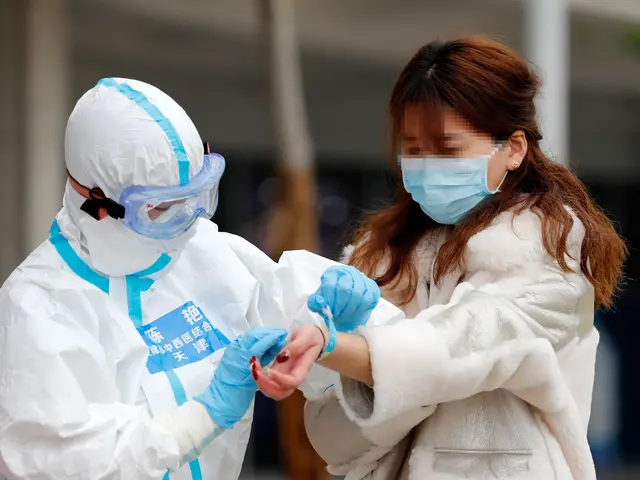Over a month after falling ill, Cheng Chuchu (pseudonym), in the city of Wuhan, the heart of the novel coronavirus outbreak, was "free" at last.
She could finally leave her bedroom and hug her son again. "I feel happy and peaceful," she said. "I spend most of my time tutoring my son with homework and reading."
Cheng just recovered from COVID-19. Her home city of Wuhan is the center of the fight against the novel coronavirus, which has claimed 2,943 lives on the Chinese mainland as of March 2. Of the deaths, over 75 percent were in Wuhan.
On Jan. 20, Zhong Nanshan, a renowned respiratory expert, confirmed people-to-people transmission of COVID-19. On the same day, Cheng began to have a scratchy throat and cough. She was on high alert and began quarantining herself though her symptoms were still mild. "I might have been infected," she told her family.
She then canceled her plans to spend the Lunar New Year with her parents in another city, some 300 km away. "This was a hard decision. It's the first time we haven't celebrated the Spring Festival together," she said.
Three days later, China took traffic restrictions in Wuhan, suspending all urban transportation and outbound channels to curb the spread of the deadly pathogen.
Hearing the news, Cheng grabbed a mask and rushed out in the wee hours to refuel her car. Later that day, she developed a fever.
On Jan. 24, or Spring Festival Eve, Cheng put on several masks, a disposable raincoat and disposable shoe covers and rushed to the hospital for a nucleic acid test.
"There were much fewer cars on the street, but the hospital was filled with patients," she recalled. "I was in a heavy mood. Those who chose to visit the hospital at that moment were probably in the same situation as me."
Cheng waited for over 10 hours to get the diagnosis for her nucleic acid test.
It was positive.
"I was stunned, worried and afraid," she said. She shut the door and stuffed the gap with old clothes. "Looking at the crack under the door, I was worried that the virus would get out to the other side where my husband and son were."
The next day, or the Spring Festival, was her son's ninth birthday, but the mother could not even buy a cake for the boy.
Cheng cheered "happy birthday" to her son via a video chat, only to receive a disappointed face. "He refused to admit that he's a year older until now," said the mother.
Her condition deteriorated over the next few days, developing a constant high fever, dyspnoea and muscular soreness.
She forced herself to gulp five liters of water every day and took her prescribed pills regularly. Yet she maintained a desperate thirst for survival. She kept dialing hotlines hoping to be hospitalized, but received little help -- there were too many patients waiting for a bed. "I was physically frail and sad as there seemed to be no hope," she said.
On Feb. 3 and Feb. 8, two makeshift hospitals -- Huoshenshan and Leishenshan with a total capacity of 2,600 beds -- were delivered and put into use in less than two weeks, respectively.
Meanwhile, to further curb the spread of the virus, Wuhan authorities began transforming public venues such as exhibition centers and gymnasiums into temporary hospitals for patients with mild symptoms.
With the help of the community, Cheng entered a temporary hospital on Feb. 6.
"We can get immediate help here, and we even had the festive food of glutinous rice balls on the Lantern Festival," she said. "I am so grateful that medics always did their utmost to comfort us, despite already being exhausted at work."
As she was recovering well, Cheng offered to help medics deliver meals and medicine at the hospital. "I was quite busy and walked over 10,000 steps every day. My family thought I was exercising in the hospital," she said.
Cheng was discharged from hospital on Feb. 11. "I was so excited to see my husband and son again and really wanted to give them a big hug, but I held back as I still need to be quarantined for 14 days," she said.
"I had thought that what I've gone through only existed in fiction, but it really happened," she said. "I'll never forget it, and I will cherish every day from now on."
Cheng said that this experience also gave her more empathy and understanding of many professions such as doctors, nurses, police, community workers and sanitation workers. She said she would do her best to help others for the rest of her life.
"When our city fell ill, medical staff from all over the country have come, and people from all over the country are donating money and materials to help us. I have seen so much love, and I will pass on this kind of great love in the future," she said.
 简体中文
简体中文

